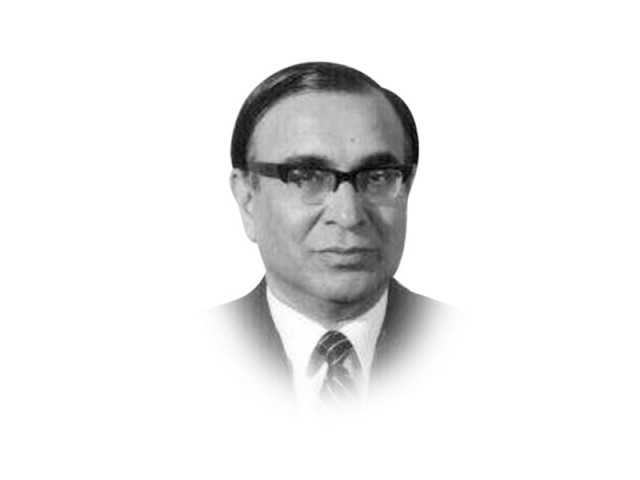The lethal son of Islamophobes
Europe needs to do something about the hardening of religious, ethnic and racial prejudices on its soil.

European commentaries would have been dominated by portraits of a psychopath who perpetrated a monstrous crime for rather inexplicable motives. The manifesto documents the formative influences from prophets of hate on both sides of the Atlantic and shows linkages with anti-Muslim, anti-left and, above all, anti-immigration groups that practice violence to out-match that done by Europe’s right wing anti-immigration political parties. The state apparatus is mostly committed to the war against al Qaeda and the surveillance of small groups of ‘radical’ Muslim immigrants. A relative tolerance of neo-Nazi and white extremist groups has given them space to grow into a menace not only for Europe’s Muslims but also for the host states themselves.
Breivik represents the point of total horror that the tolerant European states never expected to see; they associate violence only with the “other”, the Muslims under al Qaeda’s influence. Consider the two main elements of the crusade that Breivik undertook. First and foremost, he wanted to fight the immigrants’ demographic “aggression”. He saw an Arab-Muslim takeover of Europe. In 2002, while in England, he revived the Knight Templars to save western civilisation from this dark fate. In his so-called “Declaration of European Independence”, the final climactic battle would have to be fought in 2083, i.e., 400 years after the Ottomans were turned away by a united Europe. Secondly, his ire got concentrated on the “Marxist culture” of the European left that created political parties that accepted immigrants and hoped either to integrate them or let them work and flourish under a policy of multiculturalism.
Every single sub-theme of Breivik’s writing echoes vast bodies of underground and rightwing journalism that has rapidly expanded in Europe. Breivik’s apocalyptic act to punish his own country is clearly linked with the policies of the ruling Labour Party that was guilty of opening the door to immigrants and treating them humanely in terms of education and employment. Worse still, the Labour Party was not dismissive of Palestinian rights for which it had faced occasional criticism from Israel.
Recently, three top leaders of Europe — David Cameron, Angela Merkel and Nicholas Sarkozy — have turned their back on multiculturalism with the exclusive French dream of integration perishing in the harsh realities of the banlieues (in French-speaking areas, suburbs of a city) as the state remained obsessed with head scarves rather than the socio-economic issues of unemployment, housing and a general sense of deprivation among the migrant Muslim community. The fact of the matter is that the fear of demography is greatly exaggerated.
According to Timothy M Savage (of the Office of European Analysis at the US State department), there are 15.2 million Muslims in the original pre-expansion EU. France has 5 million, Germany 4 million, the UK 1.6 million, Italy 1 million and Netherlands over 880,000. Austria, Belgium, Greece and Sweden have Muslim populations each ranging between 300,000 and 450,000. In the new EU member states, the entire Muslim population is estimated at 290,000 out of which Cyprus alone accounts for 200,000. The overall demographic profile of Europe does not justify paranoid reactions. With these figures, the conjuring up the nightmare of ‘Eurabia” must be rooted in a visceral rejection of the ‘other’, hyped up by the media and exploited by right-wing parties for electoral purposes.
The entire world shares the grief of the Norwegian people who have paid a huge price for their lofty ideals. But there had been no lack of danger signals. The day Geert Wilder’s party won 15.5 per cent of the vote in 2010 elections in the Netherlands, European governments should have sat up and discarded the myth that that fascism in Europe died for ever in 1945. The wars of Yugoslavia were a frightening reminder of atavistic urges in human communities. The electoral gains of extremist parties show that fringe elements of today can stake a claim to mainstream politics tomorrow. Europe needs to do something about the hardening of religious, ethnic and racial prejudices on its soil.
Published in The Express Tribune, August 1st, 2011.



















COMMENTS
Comments are moderated and generally will be posted if they are on-topic and not abusive.
For more information, please see our Comments FAQ